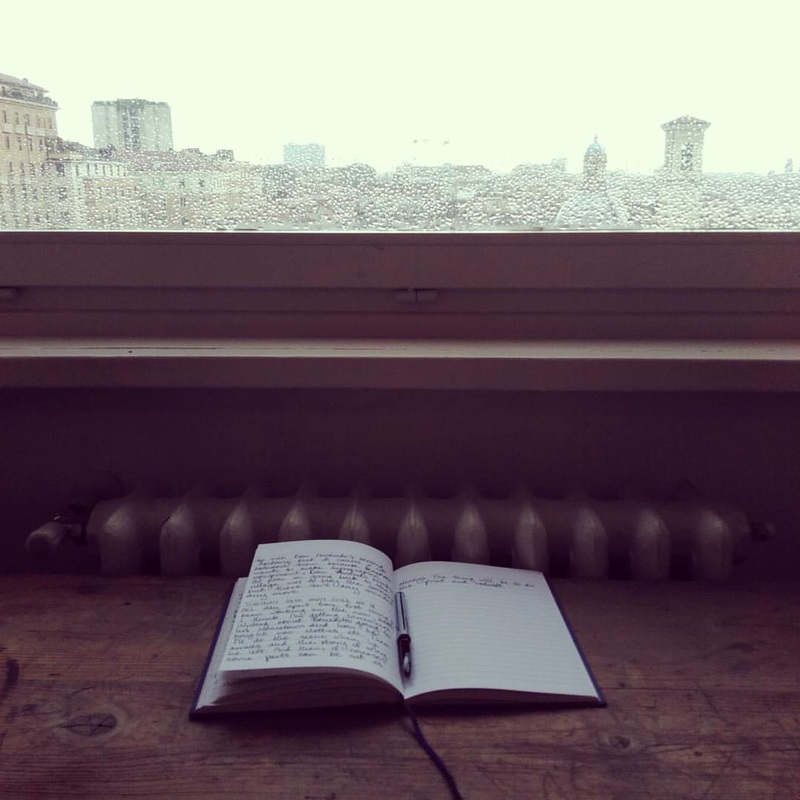People often wonder what it's like to have your work reviewed by others. Isn't it terrifying? Well, in some ways. To send your work out into the world for others to judge is a daunting process in principle. But it is also, I believe, absolutely necessary. Writers write out of a wish to communicate. You write because you want to chronicle something true that you've observed in the world, and which you hope others will connect with. In my case, I wanted to write about small-town Europe and the financial crisis and being young in its aftermath. And about small places in Europe more generally, the small town at the mercy of history. About parts of Italy's history that I had never seen written about in English, but which I felt chimed with the realities of modern Europe in surprising ways. About places that I found beautiful and wanted to set down on paper, because no one else had. You spend a long time writing a book - in my case, three years - with one particular hope: to connect with others, to communicate, to find that they too, at the end of all that endeavour, say, Yes, I believe this story is worth telling, and I believe it rings true. Or even: Yes, something like that once happened to me. To make a connection, and start a conversation, not to sit in a room on your own. But for that conversation to occur, you are utterly dependent on your readers. They are the sounding-board by which you test your story's truth, and they are the passionate advocates who will share it with others. Without both a listener and a teller, a story does not exist.
The truth about reviews, which writers rarely talk about, is that being reviewed at all is a great privilege. Each season there are thousands of books published, and yet only a handful of titles that are actually ever reviewed and written about and discussed in a meaningful way. The same few titles tend to appear everywhere, hit the bestseller lists, appear some more, rise up the bestseller lists, and so on in an ongoing cycle of buzz and recognition - and this (formerly via print publications, and increasingly, now, on the internet too) is what sells copies. What leads to this spiral of recognition can often be a single stroke of luck - one initial high-profile review, a theme in the book which chimes with something in the news and results in a flurry of unexpected interviews, or even the hard work of individual readers passing news of a book on to each other by word of mouth. This process nearly always requires an excellent book at its centre, but many excellent books with powerful stories to tell about the world also drop through the cracks and disappear before they have had much of a chance. Many of the world's best writers are sadly under-read. So for a debut novelist, and especially for a writer who does not fit straightforwardly into any one nation's literary conversation, the risk is not bad reviews but no reviews at all.
So for a reviewer to sit down ahead of everybody else, read The House at the Edge of Night and take the time to share their opinion, whether they are a professional journalist, a blogger, a reader or another, more established novelist with their own reading and writing to do, is an act of extraordinary generosity. It is an open-minded commitment to discovering and championing new writers, a commitment which no reader is obliged to make. And from writers, in return, it deserves nothing but respect. To hear that someone has connected with your work, and found truth in it, is why we write. So yes, the idea of being reviewed is frightening; yes, sometimes I have to take a deep breath before reading one of the reviews my publishers send to me, even though I know the review is positive; but in reality (mostly*) it's a wonderful thing.
*I wanted to finish by sharing some kind of comic bad review, in the spirit of honesty, but readers of The House at the Edge of Night have been kind to it so far. If I get anything as hilarious as my favourite bad review of my first young adult book ('Write the next one the same only with added dragons and sex scenes please') I will, of course, update you.
One final, unrelated thing this week: I'm very happy also to share this piece I wrote about my #yearinthelifeofawriter Instagram project for penguin.co.uk. I am trying to think about how we as writers can use social media to share honest insights, and to start conversations between readers and writers, so any ideas gratefully received...
All the best,
Catherine

 RSS Feed
RSS Feed
